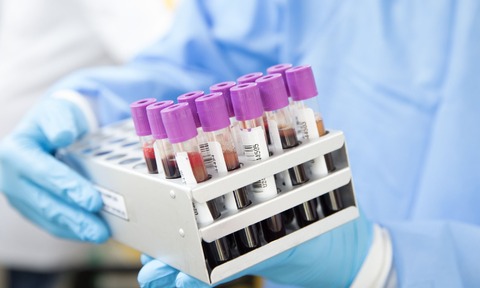Firm claims successful results for test identifying 50 cancers
19 Oct 2025

US company Grail claims that results for its new blood test suggest it is capable of diagnosing more than 50 cancer types.
A trial of the Galleri test on 25,000 North American adults produced positive results in almost 1% - out of which nearly two in three (62%) were confirmed to have some form of the disease.
The test also identified the origin of cancer in 90% of cases as well as correctly diagnosing 99% of those testing negative as being cancer-free.
In what could be a further significant breakthrough, Grail said that three out of four cancers identified currently lack screening programmes and include some of the most difficult to pinpoint.
Included in the number are pancreatic, bladder, ovarian, stomach and liver cancers.
The test is also the subject of an NHS England trial due for publication next year that involves 140,000 patients.
There are plans to extend the test further to around 1 million more patients in the UK health system if the three year trial results prove convincing.
While the results have not been published in a peer-reviewed publication, Grail president of biopharma Sir Harpal Kumar pointed out that many cancer deaths were attributable to the time taken to detect them.
Speaking on the BBC Today programme, Sir Harpal stated earlier detection would increase opportunities to employ therapies that were “much more effective and potentially curative”.
NEWS: Molecular ‘fingerprint’ spotlights 59 diseases, says lab
International researchers have recorded the signs that a raft of diseases leave in blood protein, making it easier for doctors to distinguish genuine symptoms from false alarms.
Scientists working on the Human Disease Blood Atlas via the SciLifeLab based in Stockholm, Sweden say they have recorded the molecular ‘fingerprints’ of 59 diseases.
Their findings, published in Science, concluded that each person’s blood profile had a unique fingerprint that undergoes a process of development until adulthood.
Additionally, proteins in the blood can shift either on account of the aging process or the onset of serious conditions such as cancer, cardiovascular and autoimmune disease.
Senior author Mathias Uhlén, professor at Stockholm’s KTH Royal Institute of Technology and director of the Human Protein Atlas project and lead author, María Bueno Álvez, said the study successfully pinpointed common biomarkers consistently altered in a variety of conditions.
“By comparing these diseases side by side, we can separate universal false alarm bells of inflammation from truly disease specific signals,” said Uhlén.
“The mapping of molecular fingerprints of disease is a crucial step for building blood tests that work in the clinic.”
Pic: Ahmad Ardity

